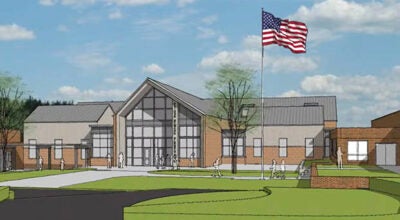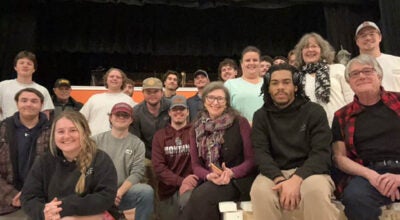Cancer therapy research licensed for development
Published 11:12 am Thursday, January 7, 2021
|
Getting your Trinity Audio player ready...
|
Cancer-fighting cells developed in a Longwood lab could soon make their way to patient treatment plans, as clinical trials are planned to start soon.
Dr. Amorette Barber’s research and development into a therapy involving genetically-modified T-cells was awarded a U.S. patent in 2018 and had success in a wide range of cancers.
That patent and the possibilities for the development of cancer treatments based on the research attracted the attention of pharmaceutical companies, and this summer Barber and Longwood inked a licensing deal with Kiromic Biopharma, a leading developer of immunology-based cancer treatments.
Kiromic has filed international patents in eight countries for the treatment and will develop the treatment for clinical trials in the next few years.
“Professor Barber’s vision and talents will give Kiromic a significant acceleration in the clinical development of our therapy platform and an even more significant advantage over our competitors. This collaboration marks the beginning of an exciting revolution in cell therapies,” Gianluca Rotino, chief of strategy and innovation officer, said.”
Barber’s research focuses on modifying T-cells, natural cells in the immune system that kill other infected cells, to better recognize specific proteins found mostly on cancer cells. With an enhanced detection system, these T-cells can seek out and destroy cancer cells with great efficiency, leaving healthy cells untouched.
Think of it like a video game — you have to destroy all the bad guys while protecting the good guys. That’s just what these modified T-cells are good at — seeking out and destroying cancer cells.
Most common cancer treatments, like chemotherapy or radiation, tend to destroy healthy tissue as well as cancer cells in an effort to ensure full effectiveness. This often weakens a patient’s immune system and causes lasting damage. By harnessing the power of your body’s natural immune cells and making them better at their job, Barber’s treatment could have the opposite effect.
The developed chimeric PD-1 (chPD1) receptor targets PD-1 proteins that are expressed on many different types of cancer cells, including ovarian, pancreatic, prostate, colon, kidney and breast cancer and melanoma. T-cells that express this receptor engage with these proteins and leads the T-cells to directly kill the tumor cells.
Barber will lead Kiromic’s chPD1 program.
“I’m excited to see this treatment take the next steps toward one day hopefully helping people suffering from a range of cancers,” Barber said. “Immunology treatments currently target only one or very few types of cancer. The T cells we engineered are effective against more than 80% of cancers — many of them the more prevalent ones like pancreatic, ovarian, breast and colon cancer. The possibilities are pretty broad.”
Barber, associate professor of biology and director of the Office of Student Research, is in her 10th year at Longwood and serves as the president-elect of the Virginia Academy of Science. In 2019, she was given an Outstanding Faculty Award from the State Council of Higher Education for Virginia, an honor reserved for only 12 faculty members across the commonwealth. This fall, at convocation, she was awarded the Simpson Distinguished Professorship, the highest faculty honor at Longwood, which provides research funding for faculty. She also serves on Kiromic’s Scientific Advisory Board.
That honor was given partly because of Barber’s mentorship of students, many of whom have gone to top graduate schools in the country.
“I’m so proud that from the moment I began at Longwood, students have been beside me in the lab, learning in real time,” Barber said. “That really is the magic of Longwood — there are opportunities for undergraduates to interact with working researchers in the lab and understand how professional research is conducted.”





